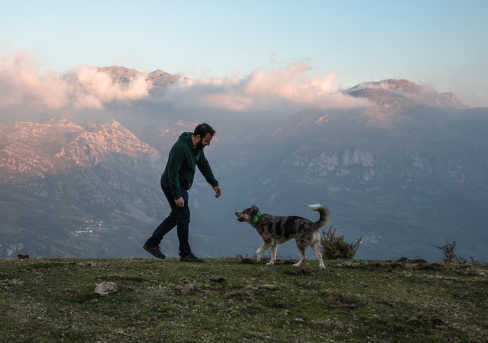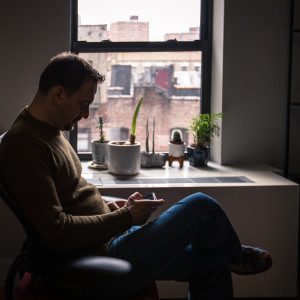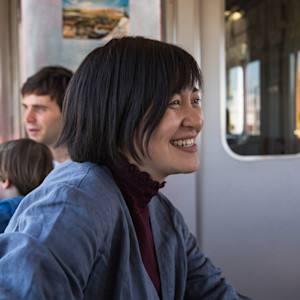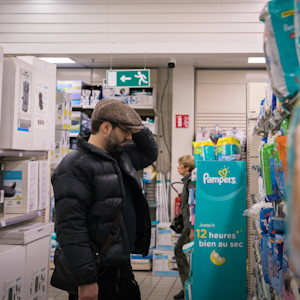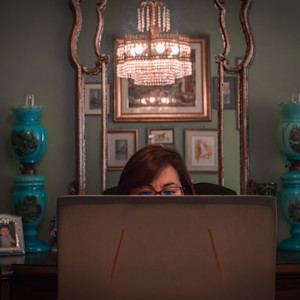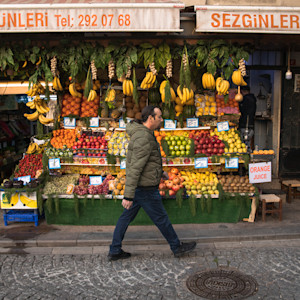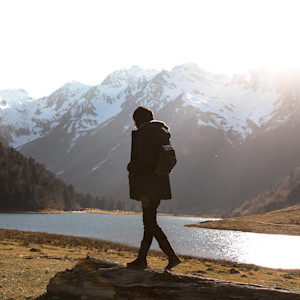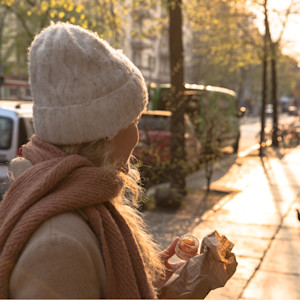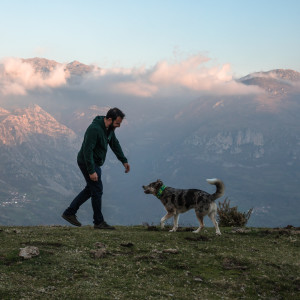Matt Grech
Content Marketing ManagerSmartling
When we sent out on the mission to create our book, Move the World with Words, we wanted to capture the stories and of individual translators.
Sitting at the intersection between languages and cultures, these translators live such unique and passion-filled lives. They've dedicated their work to moving the world with words, and connecting communities across languages.
And they live in some pretty cool places, too.
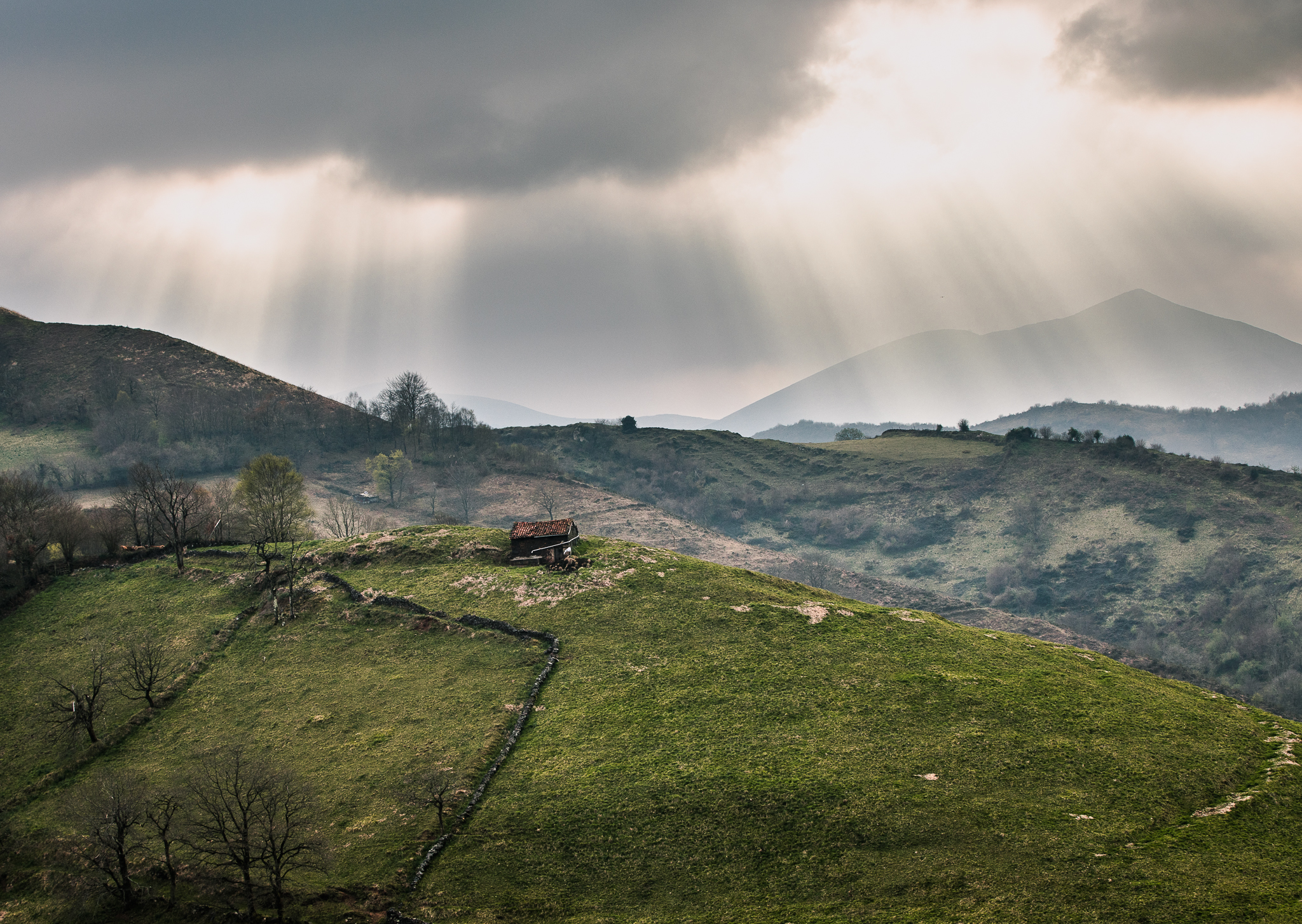
Of course, we all know that the impacts of COVID are being felt around the entire world. Everyone has been touched by this pandemic in someway. When we reached out to learn about how Smartling translators were adapting, they shared some amazing stories.
You may know Daniel, for example, from the cover of our book. And living in the rural paradise of Asturias, Spain, among the mountains and with his wife and dog, you might think Daniel's family is remote enough to slip past the effects of the pandemic.
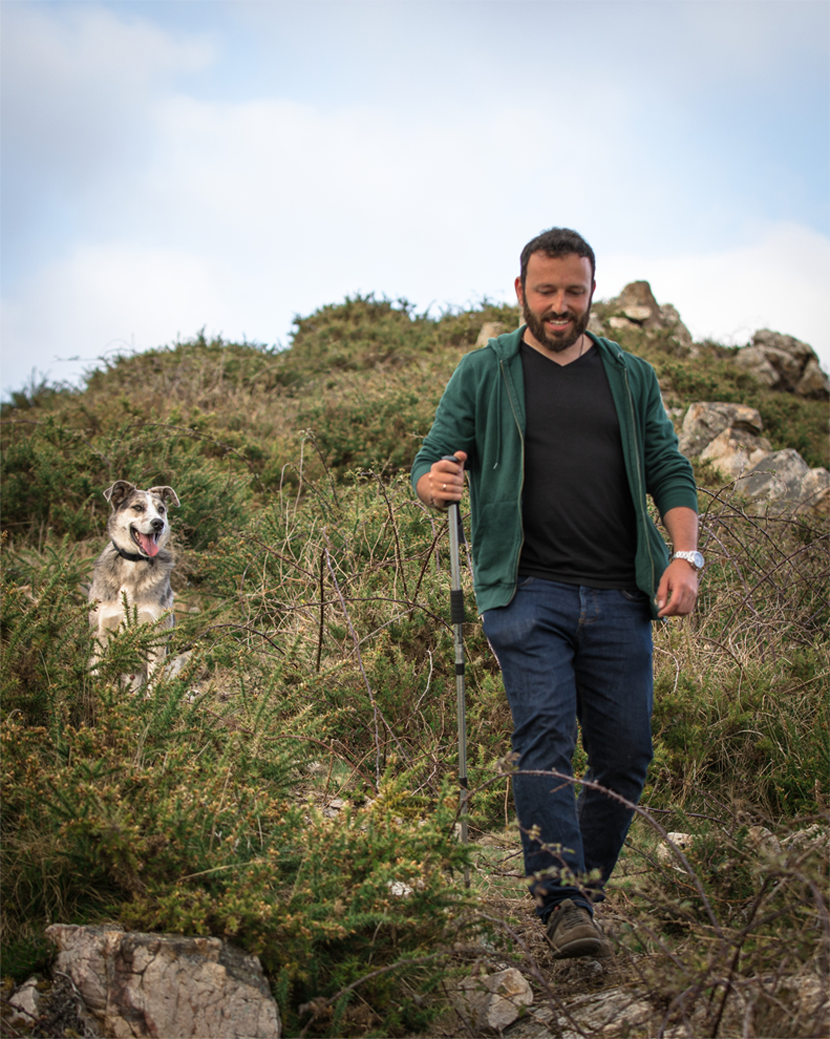
But as we exchanged emails, I was surprised to hear that this pandemic has even brought life in the mountains to a standstill.
It was really interesting to learn how Daniel has adapted his daily routine to the new situation, but also how he's staying busy; both with work and life.
Matt: We're all really glad to hear you're doing well throughout all this disruption, Daniel. I'm really curious, living in a more rural area, how has your daily life changed, have you adapted a new routine?
Daniel: My wife and I always work from home, so no change there. We don’t have any children, so in that sense our daily routine hasn’t changed, apart from weekends, of course.
Matt: Since you already have experience working from your home, thanks to tools like Smartling, what kind of routine or process do you have for staying productive?
Daniel: In my case, in terms of work routine and productivity, not much has changed. Sometimes I used to work at a co-working place in town (which I can’t do anymore), but most of the time I am in my home office.
Obviously, since movement and exercise are limited, it's important to try and stay healthy and have an exercise routine, since this really helps you keep a clear mind.
Matt: I think a lot of us are really feeling the effects of working from home for the first time. But you said the weekends have changed, is there anything special you're doing to stay positive, calm and focused during this time?
Daniel: I am speaking to my family more often than usual, just to make sure they are ok and to try and keep them in good spirits.
While I like to keep informed, I try to keep my evenings free from any information related to the COVID-19.
Since all news channels and TV programs are constantly talking about it, it is very easy to get sucked into this feeling of negativity.
Matt: Have you had the chance to head outside at all? Its pretty eerie seeing New York so quiet.
Daniel: I live in a rural area, so our routine gets impacted a bit less than in cities. There is a full lockdown, so we can only leave home for essential shopping and for a short walk with the dog.
Luckily, we have a couple of “van shops" that come to the village every week with food, so we make use of them, rather than having to go into town often. These vans operate all year round, it’s not just because of the current situation and they are extremely practical.
Matt: I'm also really curious to learn about the kind of content you've been translating recently. Have you had any COVID-19 specific content?
Daniel: It has been a bit of everything: from announcements explaining the measures that certain companies are taking to protect their staff and clients, to companies telling users how their product can help them during the outbreak, like to communicate effectively with customers, to help vulnerable people, or to move their work from an office to an online setting.
Matt: I know you typically translate for travel, consumer goods and tech, what have you been hearing from these companies?
Daniel: Among these sectors, travel has obviously been the most affected, since all but non-essential travel has been brought to a halt.
However, not all activity has stopped, since many companies within the sector are using this time to update some content and also to continue communicating with their customers, so this content still needs to be translated.
Matt: Are you noticing any changes in the demand for translation? Are some brands or industries requesting less, and others requesting more?
Daniel: So far, the sectors I specialize in haven’t been so impacted. Travel & Tourism has decreased a little bit, but the number of translations for companies offering digital services has stayed the same or even increased slightly.
Many companies need to adapt to the new circumstances and therefore they must increase their online presence or move their business online.
Matt: As a translator you get to see a lot of content and a lot of different strategies from different brands. I'm curious to hear your thoughts, how do you think brands should react and adjust to this situation?
Daniel: Obviously this will depend on many factors: the sector, competitors, who their clients are, how long the worldwide lockdown will last. However, as we have seen recently, there has been a tendency to increase online services.
Restaurants are starting to offer food delivery services, training providers are now offering online courses and training packages, some conferences are being moved online, etc. Businesses are having to adapt and, for that, an online presence will be a must, even for companies that, so far, have had a 100% offline presence.
Matt: Do you think there will be a shift in the demand for translation with this situation?
Daniel: As I said, it will depend on the specialization and on how the economy reacts in the longer term. If more companies move online, there should be a lot of demand to translate their content.
Although, according to the experts, we are facing an economic crisis and some companies will try to reduce costs, many companies will see translation as what it really is: not an expense but an investment.
Although this is a global crisis, the more potential customers we can reach, the more potential revenue we can generate. And this is hard to do without reaching global clients in their own language.
Matt: Well, back to the fun. In the book you had mentioned that you love exploring, and I can't blame you living in such a beautiful region. Is that something you've been able to keep up?
Daniel: No long walks at all. At weekends, we always used to go for long hikes, but we are not allowed now. Since you are only allowed to leave home for essential needs, we tend to do a big shop once a month and then buy other stuff from the local van-shop that comes once a week.
Walking the dog is considered 'essential', but only to cover their basic needs, so my wife usually gives our dog a 10-minute walk in the morning and I give him another one in the evening.
Matt: Of course, we all can't wait until this is over. What's the first thing you'll do when we can head out again?
Daniel: Going on a long hike and enjoying a nice meal out.
Matt: Well put.
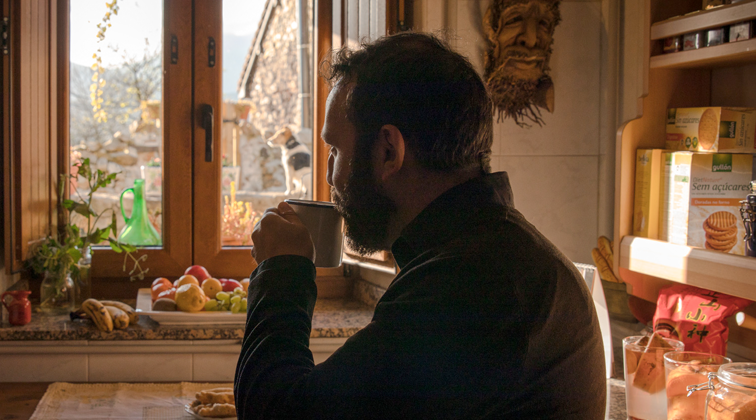
Thanks Daniel
Daniel's experience really highlights how far reaching the impacts of COVID-19 are. Even in the rural mountains of Spain, Daniel and his wife are mostly stuck at home just like the rest of us.
But this really is a time for reflection. We have the opportunity to look inward at our daily routines, and the things we love. We have the opportunity to focus on our top priorities, and we have an opportunity -- just like translators -- to move the world with words.
